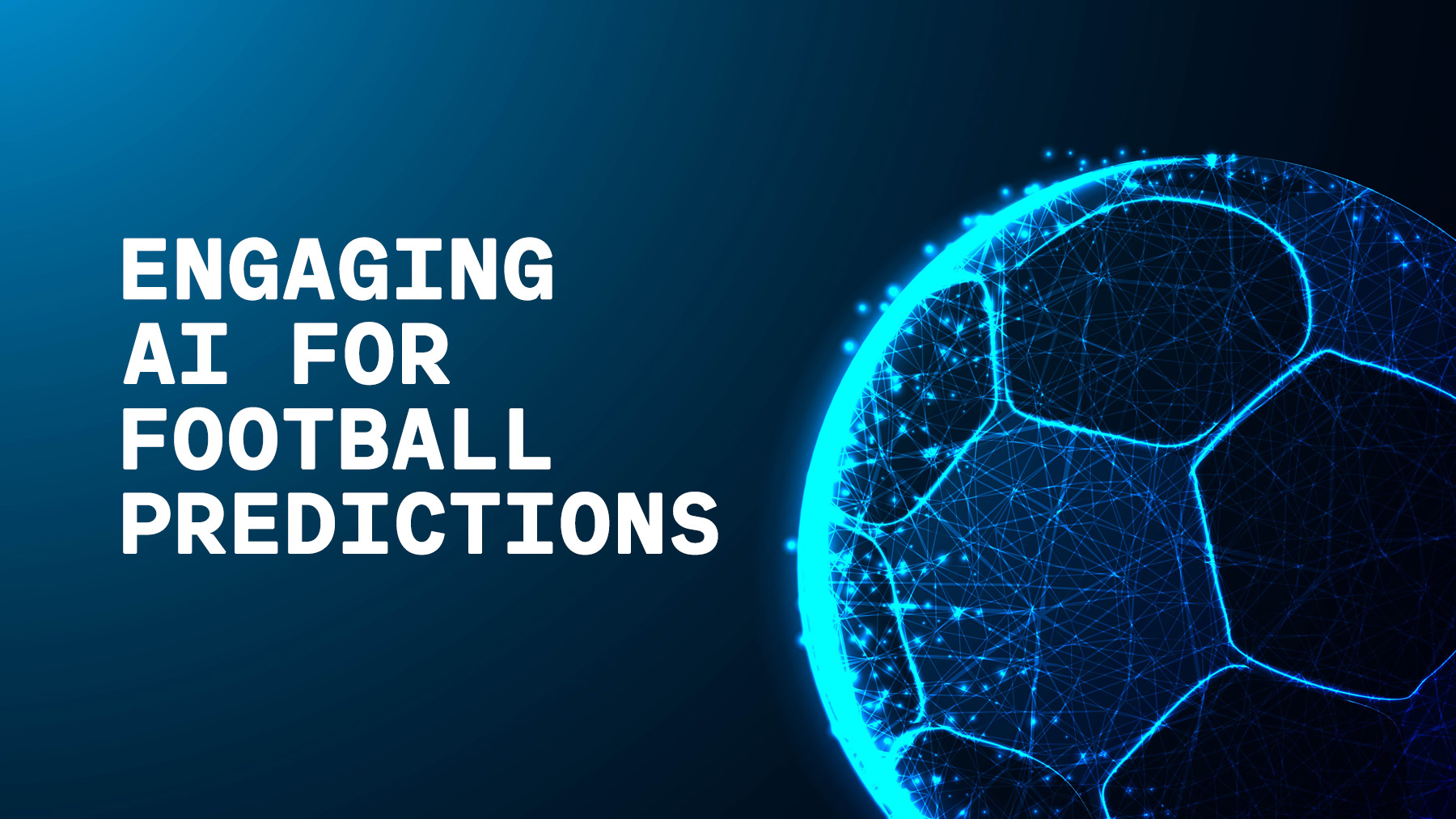
The incorporation of artificial intelligence (AI) has emerged as a transformative force, altering how we predict match results. This article goes into the interesting world of how AI, armed with powerful algorithms and machine learning capabilities, is transforming the accuracy and precision with which football matches are predicted. The days of depending entirely on intuition and historical data are over; now, we find ourselves at the confluence of technology and the beautiful game, investigating the subtle ways in which AI improves our comprehension and prediction of football matches.
The Data Goldmine
At the core of AI’s prowess in predicting football matches lies the ability to analyze vast amounts of data. From player statistics and historical match performances to weather conditions and team dynamics, AI algorithms are designed to sift through this data goldmine and extract meaningful patterns. Machine learning algorithms, in particular, thrive on large datasets, learning from past matches to make predictions that transcend human intuition.
Player Performance Analytics
AI systems analyse individual players’ performance metrics, taking into account elements such as goals scored, assists, passing accuracy, and defensive qualities. These algorithms may analyse players’ historical performance against specific opponents, under different playing conditions, and even during vital periods of a match. By analysing patterns and trends, AI can provide insights into how a player may perform in a future game, allowing for more accurate predictions.
Team Dynamics and Form
Understanding the dynamics within a team is crucial for predicting match outcomes. AI algorithms analyze team formations, player positions, and playing styles to gauge the overall team dynamics. Additionally, algorithms consider the recent form of a team – taking into account winning streaks, goal differentials, and home or away performances. This comprehensive analysis allows AI to assess the overall strength and weaknesses of a team, enhancing the accuracy of predictions.
Advanced Tactical Analysis
Beyond individual player and team measurements, AI’s analytical capabilities extend to dissecting tactical methods. Machine learning algorithms can decipher the complexities of a team’s playing style by finding patterns in ball possession, pressing strategies, and defensive structures. Understanding the subtleties of tactical manoeuvres allows AI to predict how teams will modify their plans in different game conditions, giving an extra layer of intricacy to predictions.
Opponent Profiling
In the ever-competitive world of football, understanding your opponent is half the battle. AI excels in creating detailed profiles of opposing teams, scrutinizing their strengths, weaknesses, and historical performances. These profiles help teams and analysts anticipate the strategies an opponent is likely to employ, enabling more informed decision-making both on and off the field.
Analysing Previous and H2H Matches
Analyzing the previous matches of two football teams, as well as their head-to-head (H2H) encounters, forms a crucial foundation for predicting future outcomes. Examining the historical performance of each team unveils valuable insights into their strengths, weaknesses, and overall form. By scrutinizing individual player statistics, team dynamics, and strategic patterns, analysts can discern trends that may influence upcoming matches. The significance of head-to-head clashes adds an extra layer of context, providing a unique perspective on how these particular teams interact on the pitch.
H2H statistics reveal not only the outcomes but also the style of play, scoring patterns, and any recurrent trends when these teams face each other. This dual approach, combining the broader historical context with the specific dynamics between the two teams, equips analysts with a comprehensive understanding that transcends individual player capabilities, contributing to more accurate and nuanced predictions.
Engaging Football Simulators and Games for Predictions
Leveraging football simulators and video games like EA Sports FC and Footballizer has become an innovative avenue for predicting match outcomes. These games boast almost accurate real-life data, including player attributes, team statistics, and tactical formations. The incorporation of AI simulators within these gaming platforms allows for the generation of virtual matches that closely mimic real-life scenarios. The algorithms behind these simulators are designed to emulate player behaviors, strategies, and even unexpected game events, enhancing the realism of the virtual matches.
Analysts can utilize the outcomes of these simulated games as an additional layer of predictive insight. The synergy between real-life data accuracy and AI-driven simulations creates a dynamic tool for forecasting football match results. While not a direct substitute for real-world matches, these simulations offer a unique perspective, amalgamating statistical precision with the unpredictability and excitement that make football the beloved global spectacle it is.
Fan Engagement and Their Predictions
AI’s impact on football goes beyond the sidelines; it’s enhancing fan engagement and fantasy football experiences. Predictive algorithms provide fans with insightful data, statistics, and pre-match predictions, enriching the overall viewing experience. Fantasy football enthusiasts benefit from AI-driven insights that guide them in selecting optimal player lineups, leveraging the technology to make strategic decisions in their virtual leagues.
AI has enabled the development of fan-driven predictive platforms, allowing enthusiasts to use algorithms to make predictions. These platforms encourage fans to interact and participate, generating a sense of community and competition. AI-powered forecasts spark discussions, debates, and friendly competitions among fans, adding to the overall thrill of the football experience.
Real-Time Adaptability
One of the key strengths of AI is its ability to adapt in real-time. During a match, AI algorithms can process live data, adjusting predictions based on unfolding events such as red cards, substitutions, or unexpected shifts in momentum. This real-time adaptability enhances the accuracy of predictions and showcases the agility of AI in responding to dynamic football scenarios.
Weather and Pitch Conditions
AI doesn’t stop at player and team analysis; it also factors in external variables like weather conditions and pitch quality. Machine learning models can predict how adverse weather might affect a team’s playing style or the likelihood of injuries. Furthermore, algorithms consider how teams have historically performed under specific weather situations, providing another layer of information into the forecast process.
That good